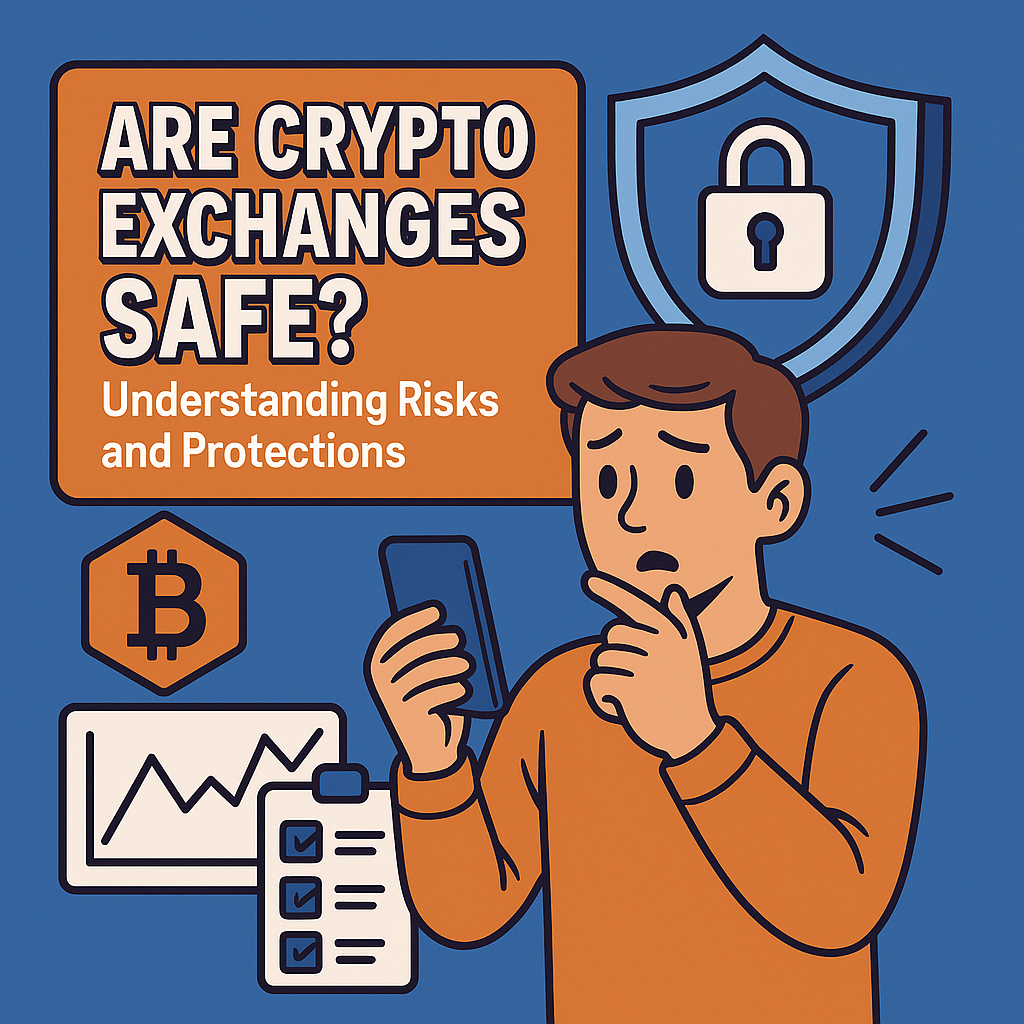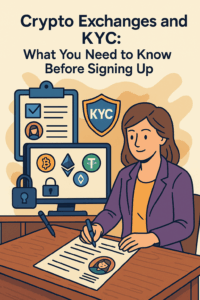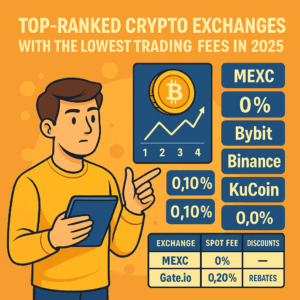
Crypto exchanges are the backbone of the digital asset ecosystem, enabling millions of users worldwide to access, trade, and invest in cryptocurrencies. As their popularity surges, so do questions about their safety. Are crypto exchanges really secure? What protections do they offer, and what risks do users face? This article provides a comprehensive look into the safety of crypto exchanges and offers actionable tips for protecting your funds.
What Makes Crypto Exchanges Safe?
1. Regulation and Licensing
Safe crypto exchanges are often registered and licensed by financial authorities. Regulatory compliance ensures that the crypto exchange adheres to strict rules related to customer verification, anti-money laundering, and asset custody.
- Examples of regulated crypto exchanges:
- Coinbase – licensed in the U.S.
- Kraken – regulated in multiple countries
- Gemini – compliant with New York State regulations
Always choose crypto exchanges that are regulated in your jurisdiction.
2. Asset Custody and Cold Storage
Top-tier crypto exchanges use a combination of hot and cold wallets to manage user assets. Cold wallets (offline storage) protect against external hacks, while hot wallets (online) provide liquidity for trading.
3. Insurance and Protection Funds
Some crypto exchanges offer insurance coverage or maintain dedicated protection funds. For example:
- Binance SAFU (Secure Asset Fund for Users)
- Coinbase and Gemini have third-party insurance on custodial assets
4. Security Features
Key security measures on secure crypto exchanges include:
- Two-Factor Authentication (2FA)
- Withdrawal whitelist
- Anti-phishing codes
- Real-time monitoring and bug bounties
A safe crypto exchange will always provide transparency on its security protocols.

Common Risks Associated with Crypto Exchanges
1. Exchange Hacks
Even the most trusted crypto exchanges can be targeted. Major incidents like Mt. Gox (2014), Coincheck (2018), and FTX (2022) have underscored the importance of due diligence.
2. Insolvency and Exit Scams
Unregulated crypto exchanges, especially offshore ones, can suddenly shut down or freeze withdrawals without warning. This risk increases when using little-known platforms.
3. Weak Customer Support
In crisis moments, crypto exchange users have reported inaccessible customer support, delayed resolutions, and frozen accounts.
4. Phishing and Fraud
Scammers often impersonate crypto exchanges via fake emails, websites, and social media. These attacks aim to steal user credentials and bypass security.
Never click on suspicious links or share passwords, even if a message appears to be from your crypto exchange.
Best Practices for Using Crypto Exchanges Safely
Tips for Users
| Practice | Why It Matters |
|---|---|
| Use strong, unique passwords | Prevent unauthorized access |
| Enable 2FA | Adds a second layer of account protection |
| Withdraw to a personal wallet | Minimizes custodial risk |
| Use only verified crypto exchanges | Ensures regulation and accountability |
| Bookmark official URLs | Prevent phishing attacks |
| Monitor account activity | Detects unauthorized actions early |
Decentralized vs. Centralized Crypto Exchanges
Some users opt for decentralized crypto exchanges (DEXs) to avoid custodial risks. DEXs allow users to trade directly from their wallets, without handing over control to the exchange.
- Pros: Full control, no KYC, better privacy
- Cons: No support, technical complexity, smart contract risks
Meanwhile, centralized crypto exchanges (CEXs) offer easier onboarding, fiat on-ramps, and customer service—but require more trust.
Many experienced traders use both types of crypto exchanges based on their goals.
Conclusion
Crypto exchanges can be safe—but not all are created equal. Your safety depends on the type of crypto exchange you choose, the security features they offer, and how you manage your account.
Reputable, regulated crypto exchanges like Coinbase, Kraken, Binance, and Gemini offer strong protections. However, no platform is immune to risks. Use crypto exchanges for trading and liquidity—but keep long-term holdings in personal wallets.
By understanding the landscape and following best practices, you can enjoy the benefits of crypto exchanges while minimizing exposure to threats.



























